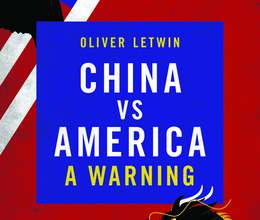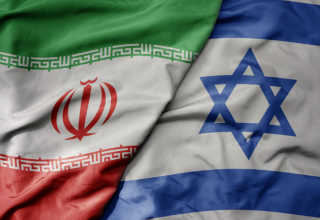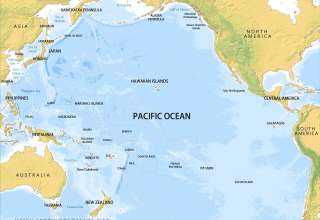Biteback Publishing , 2021
By Brian Boyd
This is the first of a three-part series
Introduction
In the era of great power rivalry, former British politician Oliver Letwin makes a useful contribution to the badly needed public discussion on where this intensifying competition is leading the world into the rest of the 21st-century.
Specifically, the respective economic ‘spheres of influence ‘of the key great power blocs- the US, China, EU, Russia, Britain and India are increasingly clashing and generating flashpoints in crucial parts of the globe.
Letwin served as Minister for Government Policy in the English Parliament from 2010 to 2016, chaired a range of cabinet committees, including being a member of the National Security Council. The latter membership, in particular, gave Letwin exposure to much national security and intelligence material.
Letwin’s book goes straight to the heart of China’s rise as a global economic superpower, which is reshaping “the landscape of international politics”. With China’s increasing presence “… on the world stage, the United States grows ever more hostile to its Asian rival”.
Letwin reveals that, during his time attending National Security Council meetings, he became aware of a struggle to agree amongst the US, British, European Union countries and their respective security and academic commentariats about, “how to conduct a peaceful long-term relationship with China”.
In his assessment, Letwin argues that today the US constructed (post World War II) international rules-based order, “is completely ill-equipped to foster a positive relationship between China and the United States and that the global community must act now to correct the collision course these two behemoths are currently on, before it’s too late”.
‘Spiralling towards war…’
Letwin’s chapter 1 leads with the above headline.
China’s performance in the first part of the 21st century is described as “remarkable”. In contrast US, British, and EU growth is described as being overall “sluggish”, while in the same period the Chinese economy has “advanced by leaps and bounds”. And, since the end of the 1990’s, the United States has been considered ‘the undisputed top dog-the world’s leading power’.
The powerbrokers in Washington, for decades, were comfortable in believing that any challenges to their foreign policy could be solved by “the overwhelming power of the US economy and the US military machine”.
The rapid rise of China has changed all of this.
The collective view in Washington is this is an ‘alarming development’ that challenges “the concept of American hegemony”.
A discussion has emerged in some quarters that the US should seek to establish a ‘productive working relationship’ with China, in order to replace ‘intense mutual suspicion’. In response to this, hardline, pro-war hawk critics describe such a proposal as ‘appeasement’. Letwin makes his position clear-any chance of “preventing hot war” has to be explored (p13).
Letwin comments: “What makes this developing global power struggle between China and the US so dangerous is that there are plenty of flash-points-specific international tensions that could easily provoke conflict between the incumbent superpower and the rival superpower.”
The struggle for control-natural resources
The author notes under the above heading of chapter 6, the pressure on global energy resources is well known.
The World Economic Forum (W E F) published a report recently, showing the demand for coal, oil and gas will grow markedly over the coming decades. Letwin laments that it is a “sad fact” that managing natural resources per se, remains an issue for individual nations rather than being addressed by a broader geo—political solution. He acknowledges the most significant nation states have so far strongly and actively resisted any attempt to globalise resource management.
The failing international system
Under the above heading of his chapter 7, Letwin suggests that even the current war of words “…between Washington and Beijing is dangerous. The trade war is dangerous. The territorial and maritime flashpoints of conflict are dangerous and so, too, is covert cyber warfare and the intensifying competition for scarce natural resources”.
He insists the world needs to be protected against the risk of any or all of these things turning into… “a hot war”.
The international rules-based system, set up after 1945, had a “principal aim to prevent further catastrophic conflict between great powers… unfortunately, however, when it comes to managing the causes of conflict in the 21st-century, the 20th century rules-based system is not up to the job”.
By way of illustration Letwin noted over recent decades the increasing use by the US to prosecute military interventions that were not endorsed by the United Nations. Afghanistan in 2001, Iraq in 2003 and Syria in 2014 are given as examples. “These failures of the international system have been noticed by everyone everywhere”, comments Letwin.
Meanwhile “highly strategic action” is being undertaken by the Chinese, which over the decades, has been building up “an Asia-centric alternative” to official international institutions. China has particularly been using its economic power to persuade a number of other nations to join them in moves aimed at creating a separate set of international institutions.







